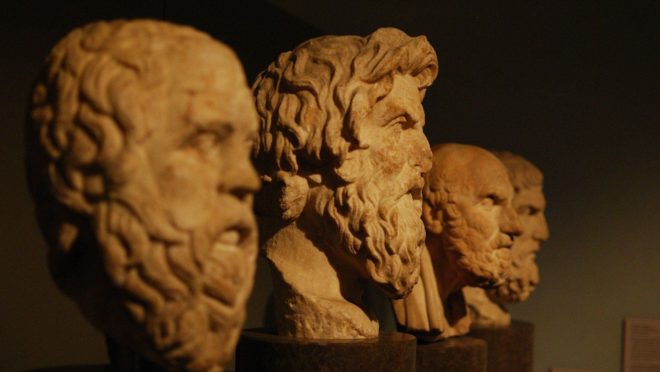Those who accuse philosophy of irrelevance – and say that science will one day answer all human mysteries – have not understood the place of science in the general framework of knowledge and the meaning of philosophical activity in the formation of the human soul. Inherited from the worst stage of positivism, which sees obscurantism in everything that is not a mirror, scientific arrogance is nothing but pure ignorance.
Philosophy cannot be denied without another basic philosophical concept, as said philosopher of the heart William James. Deep down, those who despise philosophy hide another philosophical conception of the world. Therefore, the denial of philosophy is also a philosophical act. In this case, denying philosophy based on an assumed knowledge of the value of science is a very weak philosophical and scientific position. Those who fall for it cannot see that the beliefs that motivate this position are connected to a philosophy and that there is nothing scientific whatsoever.
Science deals with particular objects and requires specific methodologies for each of these things; Philosophical introspection – even one who seeks to deny philosophy – deals with another record of the discursive universe and in very demanding ways. For philosophy, everything can be questioned, including the very value of philosophy, science, etc. It does, however, require rational rigor, mastery of history of ideas, intellectual honesty, etc.
The methods of science are limited to certain things; On the other hand, those who belong to philosophy start from the broad horizon, without social barriers or ideological fears – that is: no one can say to philosophy ‘This is not your place to speak, and you cannot question it’.
philosophy has the college as a horizon of interest. Of course, many philosophical reflections can be devoted to certain things. For example: If I’m going to ask questions about the basics of science, I do science philosophy; If you ask religion, philosophy of religion the story, philosophy of history technical experience, art philosophy Politics,
political philosophy; and so on and so on.
However, to illustrate the difference between science and philosophy, I resort to that fascinating historical dispute in chemistry whose aim was to explain the phenomenon of combustion, ranging from the phlogiston theory proposed by Georg Ernst Stahl, in the seventeenth century, to discovery. of oxygen, by the great Lavoisier, in the eighteenth century.
A scientific explanation needs to build from careful analysis of empirical data observed in a process — in this case, the chemical process of combustion. Philosophers are not interested in something so specific, but rather turn their attention to abstraction, eg, “What is the matter?” ; “What time is it?” The summary here can’t be an excuse for foolish daydreaming. Philosophical questions are of the type: “How is science possible?” , “whats the truth?” What is the nature of identity and difference? , because the subject of philosophy is “wholeness”, “existence”, knowledge”.
The scientist speaks through his specialized knowledge about a particular object and seeks to explain in detail The relationship between phenomena and their true causes; But when the scientist begins to ridicule such large-scale problems, he distorts the boundaries of scientific activity, does not respect the supremacy of certain methods and crosses the boundaries of certain areas of research. So is philosophy!
To remember Heidegger’s formula, which has already generated many misunderstandings -, Science does not think. And given the amount of nonsense we’ve read about science’s transcendence of philosophy, Heidegger was not wrong. But I like Wittgenstein better when it’s at the end Tractatus Logico-Philosophicus“We felt that even if all possible scientific questions were answered, our vital problems would not be touched upon,” he said.
No doubt it is important to discover a cure for a disease, what are its components, if there is life on other planets, how old is the universe, etc., but this is not vital. The human call to search for meaning, which begins with the realization that we are human and that it is not easy to tell whether life is really worth living, cannot be answered in the laboratory. If science explains ‘how the world works’, then philosophy has the real task of keeping up with the question about the meaning of ‘existence’, without underestimating it.

“Wannabe internet buff. Future teen idol. Hardcore zombie guru. Gamer. Avid creator. Entrepreneur. Bacon ninja.”

